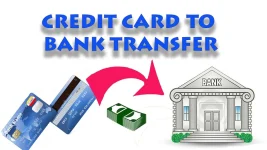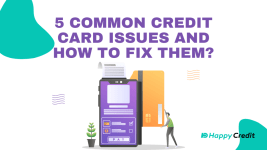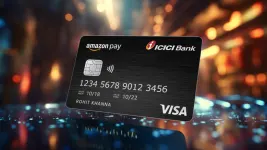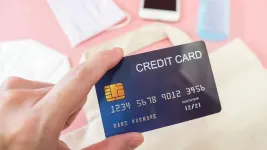Everything You Need to Know About Credit Card Settlement [August, 2024]
Credit cards are an easy way to boost your purchasing power. They are used by millions of people worldwide and can be highly convenient. Credit cards offer many benefits when used wisely and can work in your favour financially. That said, if you are not careful, bad credit card discipline can just as easily land you in serious debt.
You may have to consider credit card settlement as a last resort if you cannot pay your dues due to reckless overspending or a loss of income.
What is Credit Card Settlement?
Failing to pay your credit card dues is a slippery slope. The interest on your outstanding amount keeps piling up, and you are also charged a late payment fee. It is also important to note that every missed payment drastically affects your Credit Rating. This is where a Credit Card Settlement may offer some respite.
A Credit Card Settlement is an agreement between the cardholder and the credit card issuer where the two parties settle on a one-time lump sum payment in exchange for a complete waiver on all pending credit card dues. The final amount depends on the issuer and your ability to negotiate. It is important to note that a credit card settlement is used in extremely rare cases.
Does a Credit Card Settlement Affect Your Credit Score?
Credit Card Settlements significantly impact your credit score as it indicates irresponsible financial behaviour on your part. The impact is considered bad when one files for bankruptcy. Another important point to note is that a credit card settlement stays on your credit history for at least 7 years and will impact all future credit applications.
Credit Card Settlement Process
You can initiate the credit card settlement process by following the below steps.
- Reach out to the Credit card issuer or a debt settlement agency.
- Briefly explain your current financial situation due to which you are unable to make payments in a Credit Card settlement letter, and let them know that you are open to negotiations with other repayment terms.
- Offer a lump sum payment to the issuer and let them know your intent to file for bankruptcy.
- It will then depend on the issuers to accept or deny the offer. If the request is approved, you will be offered a repayment plan to clear your dues.
Improve Your Credit Score After Opting for a Credit Card Settlement
Your credit score would have been affected if you had no choice and had to go in for a credit card settlement. However, it is never too late to turn around and begin improving your credit situation. Here are a few steps to slowly and steadily improve your credit score.
- Continue to use credit: After this experience, most people avoid using credit cards. This, however, is not a good idea. Instead, learn from your mistakes, continue using them wisely, and make full payments on time. Lack of any credit activity will decrease your credit score, but using the credit card wisely will help you rebuild your credit score steadily.
- Never exceed 50% of your credit limit: Using more than 50% of your available credit limit is viewed as a lack of spending disciple. When your goal is to improve your credit score, ensure you never exceed the 50% mark of your available credit limit.
- Make regular payments: Timely repayments play a major role in calculating your credit scores. Start paying off all your dues on time and in full. You may have to cut down on other expenses, but timely payments will positively impact your credit scores.
Following strict financial discipline can go a long way in improving your credit score. You should set a target score of 750 or above, and following the tips mentioned above should help you get there in 6 to 12 months, depending on your current score.
Alternatives to Credit Card Settlement
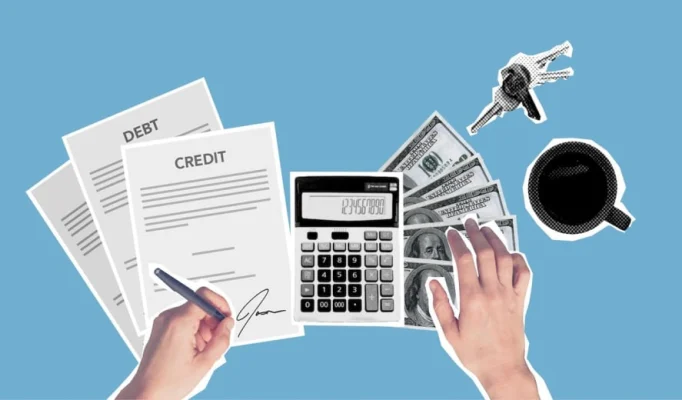
A Credit Card Settlement should be the last resort if you have exhausted all other means to pay your dues. As mentioned earlier, a settlement is recorded as a black mark on your credit history for a long time. You could still consider the options below to avoid going in for a credit card settlement.
- Credit Card Balance Transfer: If you have an unpaid balance on a credit card, you can transfer the balance from one card to another. This will be beneficial if the other credit card has a lower or no interest rate on the unpaid balance for a set period (up to 3 months, in most cases). Credit card companies provide this option and charge interest only after the interest-free period has expired. Alternatively, some credit card companies allow users to convert their transferred balances into EMIs.
- Explore Alternative Credit Sources: Alternate sources of credit such as a Personal Loan, a top-up Home Loan, or even a Gold Loan can be considered instead of a credit card settlement. The interest rates on these financial instruments are much lower than credit cards and can buy you additional time to clear off your dues.
Conclusion
It’s best to avoid getting into a situation where you have to go in for a credit card settlement. Use your credit card wisely and ensure that your monthly bill does not exceed what you can’t afford to pay comfortably. If, for any reason, you do land in financial trouble, take things one at a time and remember it’s not too late to turn things around with the proper means.
FAQs
Q. Is opting for a credit card settlement a wise decision?
Ans. A credit card settlement should be your last option after you have exhausted all other means of raising money to pay off your dues.
Q. What are the effects of going in for a Credit Card Settlement on my credit score?
Ans. A credit card settlement is recorded as a black mark on your credit history and stays there for 7 years, affecting all your future credit applications.
Q. What is considered a good Credit Score?
Ans. A CIBIL score of 750 and above is considered a good credit score.
Q. How to avoid landing in Credit Card Debt?
Ans. Use your credit card wisely, and spend what you can afford to pay back. Make payments on time and in full.
Q. How can I improve my credit score after a Credit Card Settlement?
Ans. To improve your credit score, continue using a credit card, never exceed 50% of your allotted credit limit, and make payments on time. This will demonstrate responsible credit behaviour to credit bureaus.

Product prices and availability are subject to change. Any price and availability information displayed on merchant's site at the time of purchase will apply to the purchase of these products. HappyCredit is a participant in the Amazon Services LLC Associates Program, an affiliate advertising program. As part of this program, we may earn commission from qualifying purchases made through the affiliate links provided on this website. We only promote products on Amazon that we genuinely believe are of high quality and value to our audience. The inclusion of affiliate links does not influence our editorial content or product recommendations. Our primary goal is to provide useful information and help you make informed purchasing decisions.
Certain portions of the text in this article might have been created using AI tools and subsequently edited by the author to improve the overall quality and clarity of the content for readers.
![Everything You Need to Know About Credit Card Settlement [August, 2024] Everything You Need to Know About Credit Card Settlement [August, 2024]](https://happycredit.in/cloudinary_opt/blog/credit-card-settlement-3u5s6.webp)



